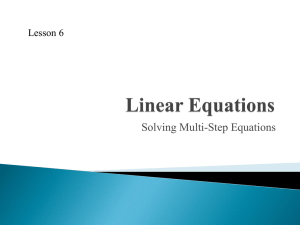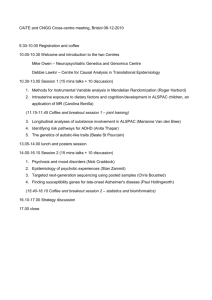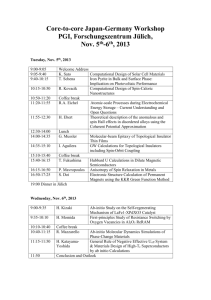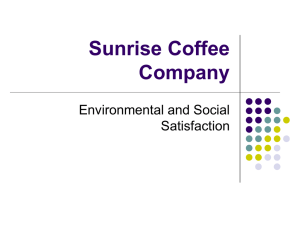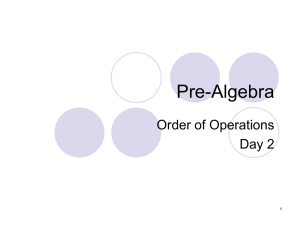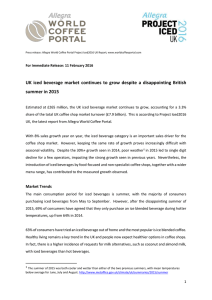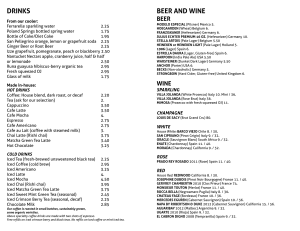Problem Set 1
advertisement
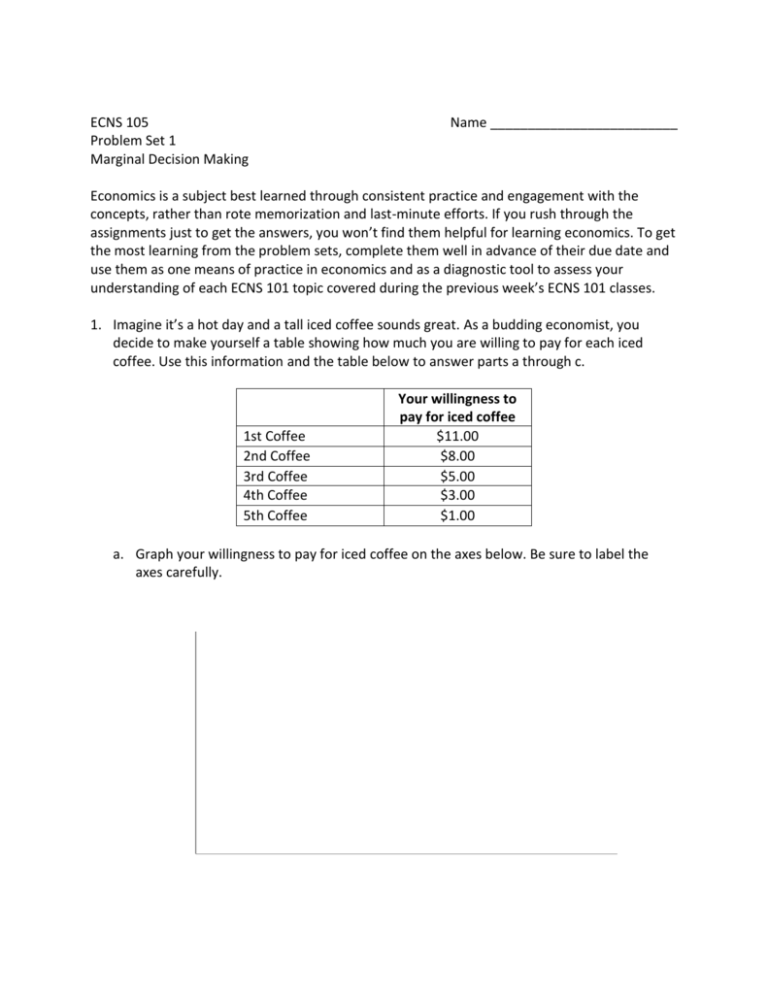
ECNS 105 Problem Set 1 Marginal Decision Making Name _________________________ Economics is a subject best learned through consistent practice and engagement with the concepts, rather than rote memorization and last-minute efforts. If you rush through the assignments just to get the answers, you won’t find them helpful for learning economics. To get the most learning from the problem sets, complete them well in advance of their due date and use them as one means of practice in economics and as a diagnostic tool to assess your understanding of each ECNS 101 topic covered during the previous week’s ECNS 101 classes. 1. Imagine it’s a hot day and a tall iced coffee sounds great. As a budding economist, you decide to make yourself a table showing how much you are willing to pay for each iced coffee. Use this information and the table below to answer parts a through c. 1st Coffee 2nd Coffee 3rd Coffee 4th Coffee 5th Coffee Your willingness to pay for iced coffee $11.00 $8.00 $5.00 $3.00 $1.00 a. Graph your willingness to pay for iced coffee on the axes below. Be sure to label the axes carefully. b. Suppose that the price of a tall iced coffee is $2. Graph this price in your figure above (hint: it will be a horizontal line). c. What is the marginal cost of a glass of iced coffee? d. According to the marginal decision rule, how many cups of iced coffee would you be willing to purchase when the price is $2 each? Briefly explain. e. Now assume the price of iced coffee rises to $5 per glass. Graph this price in your figure above. f. According to the marginal decision rule, how many cups of iced coffee would you be willing to purchase when the price is $5 each? Briefly explain. 2. Pauley loves hot dogs. The left side of the table below shows Pauley’s total benefits (or total willingness to pay) associated with eating hot dogs during a night. The table on the right shows Pauley’s marginal benefit Number of Hot Dogs 1 Total Benefit Hot Dog $7.00 1st 2 $13.00 2nd 3 $18.00 3rd 4 $22.00 4th 5 5th Marginal Benefit $7.00 $3.00 . a. Complete the blank cells in the table. b. Suppose that hot dogs are priced at $5.50. How many hot dogs will Pauley choose to buy in a night? c. Suppose that hot dogs are priced at $3.50. How many hot dogs will Pauley choose to buy in a night? d. What is the difference between total benefit and marginal benefit?
![저기요[jeo-gi-yo] - WordPress.com](http://s2.studylib.net/store/data/005572742_1-676dcc06fe6d6aaa8f3ba5da35df9fe7-300x300.png)

